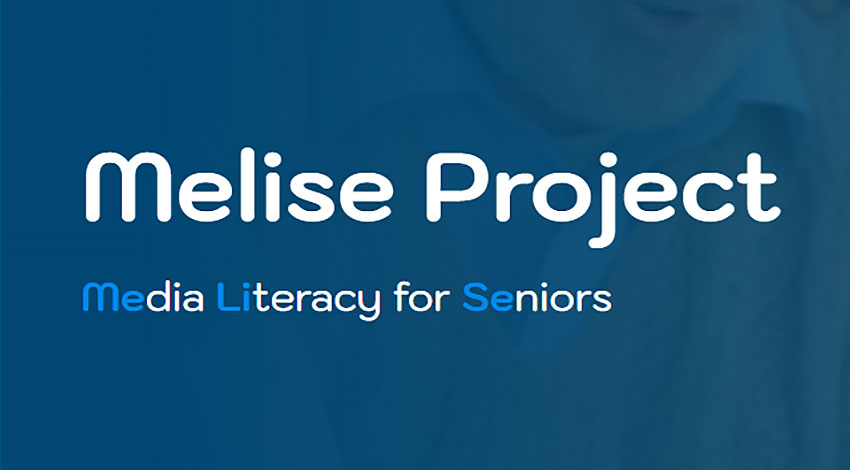The digital era has brought significant challenges, especially for senior citizens, who often find themselves on the margins of technological advancements. The MELISE Project (Media Literacy for Senior European Citizens) aims to address this gap by offering the innovative free course “Networks and Realities: Media Literacy for Seniors”, focusing on enhancing the digital skills and critical thinking of older adults.
The Peace Journalism Laboratory (PJL) of the Aristotle University of Thessaloniki is actively involved in the project as an official partner, contributing to both the development of the course content and the promotion of the initiative in Greece and across Europe.
The Course Content: Thematic Units and Innovative Methods
The “Networks and Realities” course is structured into thematic units that address critical issues of the modern digital environment. The course aims to provide practical knowledge and tools for senior citizens to protect themselves from misinformation, online fraud, and fake news.
Thematic Units of the Course
Disinformation Awareness
Participants learn how to identify fake news and unreliable sources of information. The course focuses on recognizing clickbait, misleading headlines, and fake profiles on social media platforms.
Understanding Artificial Intelligence (AI)
Artificial intelligence is now an integral part of daily life. The course explains in a simple and understandable way what AI is, how it is used in social media and online searches, and what ethical and social implications it entails.
Opinion vs. Fact
In a world full of opinions, participants are trained to distinguish between facts and personal opinions and to evaluate the credibility of information.
Detecting Audiovisual Manipulation
The use of manipulated images and videos is a frequent phenomenon online. The course provides practical advice on recognizing such manipulation techniques.
Fact-Checking Tools
Participants are introduced to tools and techniques for fact-checking, helping them verify the accuracy of the information they receive.
The Innovative Method: Gamified Lessons and the Metaverse
The “Networks and Realities” course goes beyond theoretical knowledge by utilizing modern educational technologies to provide a more interactive and engaging experience:
-
Short Videos: Present key concepts in a simple and understandable way.
-
Interactive Exercises: Allow participants to apply what they learn in practice.
-
Metaverse: The course takes place in a virtual environment with thematic rooms, where live events and discussions with experts are held.
The gamified approach makes the course more appealing and enhances participants' engagement.
The Role of the Peace Journalism Laboratory (PJL)
The Peace Journalism Laboratory (PJL) is one of the key partners in the MELISE project and plays a crucial role in the course's implementation.
PJL’s Key Responsibilities
-
Development of Educational Content
PJL has undertaken the development of a significant part of the course material, with a particular focus on techniques for identifying misinformation and detecting audiovisual manipulation. -
Educational Actions and Workshops
The lab organizes seminars and workshops, aiming to educate the public on critical content analysis and the use of fact-checking tools. -
Adaptation of Content to the Greek Context
PJL tailors the course material to the needs of the Greek audience, taking into account the specific characteristics of Greek society regarding misinformation and the use of social media. -
Dissemination of the Project in Greece and Europe
Through collaborations with local and international organizations, PJL promotes the course and the values of the MELISE project, contributing to a broader understanding of the importance of digital literacy.
Statement from the Peace Journalism Laboratory
The head of PJL stated:
“Our participation in the MELISE project is extremely important, as it addresses the need for older adults to acquire skills that will protect them from misinformation and online fraud. Our contribution to the course design is based on our long-standing experience in issues of media ethics and critical content analysis.”
Registration and Participation in the Course
Participation in the course is free of charge and is aimed at:
-
Senior citizens
-
Adult educators
-
Social workers
-
Organizations working with the elderly
For more information and registration, visit the official MELISE platform. The MELISE project is supported by the Creative Europe Programme (CREA) of the European Union.
Melise sMOOC: https://meliseproject.eu/?page_id=41
Melise Official Website: https://meliseproject.eu/




